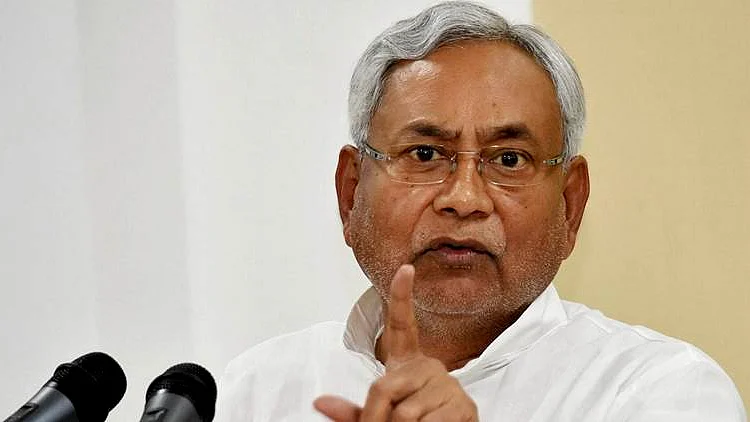In Bihar, the poor and Dalits bear the brunt of Nitish’s liquor prohibition law
Two years after prohibition was imposed, its success remains extremely debatable

As Bihar completes two years of ban on country liquor on April 1 and total prohibition on April 5, Bihar Chief Minister NItish Kumar doesn’t tire tom-toming its success. Despite not denying the social advantage of prohibition, the fact is that liquor ban in Bihar is being violated with impunity, just like Gujarat. Hardly a day passes without the local media carrying headlines about seizure of contraband liquor and arrests for consuming liquor or carrying on trade in it.
Consider this: over 5.6 lakh liquor-related police raids have been conducted, over 88,000 FIRs have been registered for illegal consumption and liquor smuggling and over 1.15 lakh people arrested for violating the liquor ban over the last two years. Over 23 lakh litres of IMFL and country liquor has so far been seized. The poor and downtrodden bear the brunt of arrests – sources say that more than 90 per cent people arrested in liquor cases belong to Dalit, Mahadalit or poor families.
Despite a very stringent dry law – termed draconian even by state BJP leaders less than a year ago, when the saffron party was in the opposition – smuggling of liquor in the state is rampant. A retired top cop said that prohibition has given rise to a new generation of criminals, with children, youth, girls and women acting as liquor carriers.
NItish-led governments had in the past spread the network of licensed liquor shops far and wide, even in remote rural areas. In contrast, his government’s campaign now to propagate prohibition is not equally effective. Medics, law students and other professionals were arrested in state capital Patna itself in the past few weeks. The focus of police machinery has shifted to enforcement of dry law, leading to a sharp spike in other major crimes.
Corrupt cops are allegedly lining their pockets by patronising the liquor mafia. In one case, all cops of a police station in Patna were en mass transferred on the charge of dereliction of duty in prohibition enforcement. People couldn’t agree more when the Station House Officer (SHO) of Sikarpur police station in West Champaran told a court sometime back that liquor was being sold not only in area under his jurisdiction but also in different parts of the state!
RJD chief Lalu Prasad Yadav told an RJD legislature party meeting in November last year that liquor was flowing like the Ganga through dry Bihar but CM Nitish Kumar was turning a blind eye to it. “The way an owl cannot see during the day, similarly Nitish cannot see the failure of prohibition in the state. Liquor is being delivered to homes but still Nitish is patting his own back for the success of prohibition. In reality, it’s a big failure,” he had said.
Senior RJD leader Shivanand Tiwari said prohibition has a positive effect, but the people facing conviction under this law are mostly poor Dalits. They don’t even know that they would be jailed for drinking alcohol. The total number of arrests now under the dry law surpasses that of arrests during the Emergency.
Tiwari, who was state excise minister during the Rabri Devi regime, immediately before Nitish took over in 2005, said the excise revenue from liquor then was roughly Rs 1700-1800 crore. This amount went up to about Rs 5,000 crore as Nitish government opened liquor shops even in villages. Now, with an eye on image building and to win the support of women, he has done an about-turn. The white-collar people are still drinking. “I am afraid that in an year from now, mafia gangs will control the liquor business,” he said, adding, “You cannot make someone a Mahatma by using a stick.”
Incidentally, Bihar’s prohibition law makes drinking or even possessing liquor a bigger offence than several heinous crimes. The penalty for liquor consumption is imprisonment for 5 to 10 years, with a fine of up to Rs 10 lakh. If liquor is found, consumed, manufactured, sold or distributed inside any premise, it shall be presumed that all adults above the age of 18 had knowledge about it, unless proved otherwise. A train passenger, passing through Bihar, not intending to get down in the state, can be booked if he carries liquor. The penalty is tougher for dealing in liquor, including spurious one. The penalty for mixing noxious substances with liquor causing death is death sentence or life imprisonment besides fine, which shall not be less than Rs 5 lakh but which may extend to Rs 10 lakh.
Follow us on: Facebook, Twitter, Google News, Instagram
Join our official telegram channel (@nationalherald) and stay updated with the latest headlines
